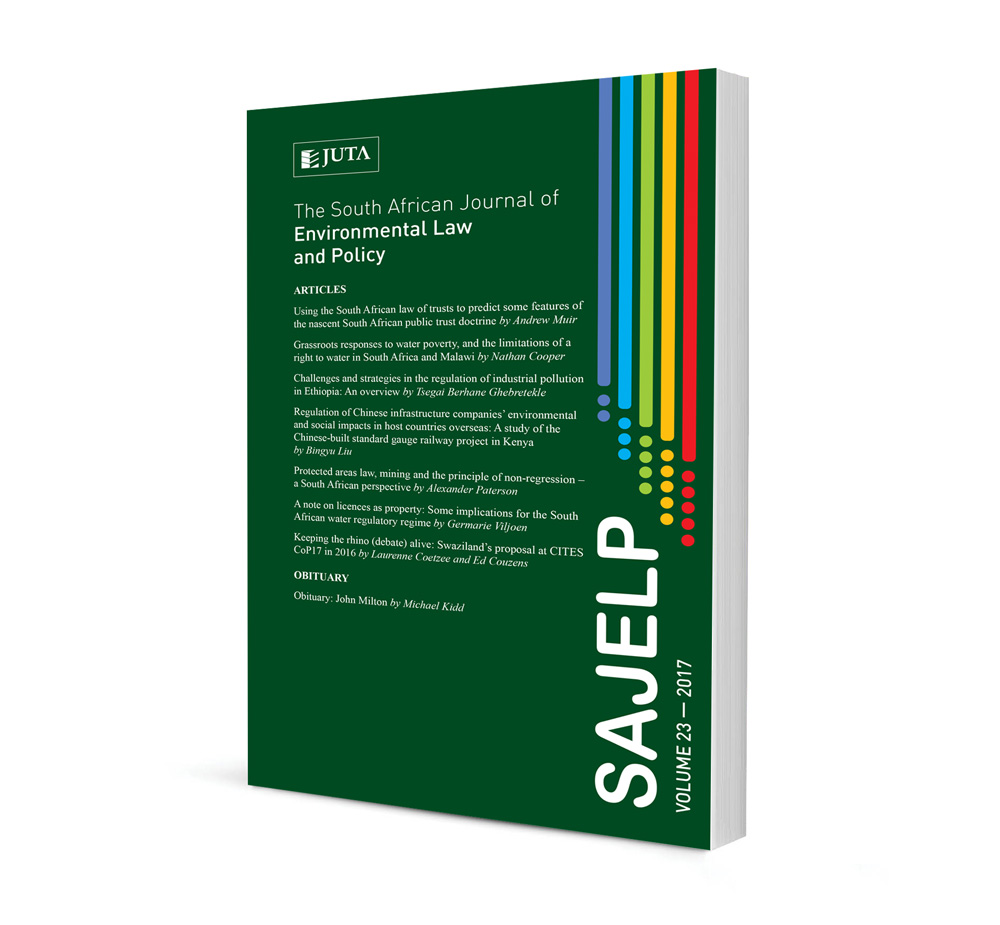
Case Notes: The interface between customary rights and environmental legislation: Lessons from Gongqose & Others vs Minister of Agriculture, Forestry and Fisheries & Others (SCA) 2018
Author: Alexander Paterson
ISSN: 2616-8499
Affiliations: BSocSci LLB LLM (Environmental Law) PhD (UCT) Professor of Law, Institute of Marine and Environmental Law, Faculty of Law, University of Cape Town
Source: South African Journal of Environmental Law and Policy 2020, p. 134 – 160
https://doi.org/10.47348/SAJELP/v26/a5
Abstract
The Constitution of the Republic of South Africa, 1996, recognises customary law as an independent and original source of law, subject to the Constitution itself and legislation that specifically deals with customary law. As recognised by the Constitutional Court in Alexkor Ltd vs the Richtersveld Community (2004), customary law, as an independent source of law, may give rise to rights including rights to access and use natural resources. Rights to access and use natural resources are often comprehensively regulated by legislation. Conflicts between customary law and legislation relevant to natural resources may arise, as evidenced in the case of Mr Gongqose, who along with several other community members were caught fishing in the Dwesa-Cwebe Marine Protected Area situated off the Eastern Cape coastline. Notwithstanding their claims to be exercising their customary rights to fish in the area, they were convicted in the Magistrate’s Court for certain offences in terms of the Marine Living Resources Act (1998), under which the marine protected area had been established. Their appeal to the High Court proved unsuccessful and the Supreme Court of Appeal was tasked with considering the relationship between their customary rights to fish and legislation purportedly extinguishing these rights. The SCA’s judgment in Gongqose & Others vs Minister of Agriculture, Forestry and Fisheries & Others (2018) is the first of its kind in South Africa to consider the extinguishment of customary rights to access and use natural resources through post-constitutional legislation. This note critically considers the guidance the SCA provided on proving the existence of customary rights to access and use natural resources, and the manner in which they may be extinguished through legislation. While the focus is on marine living resources, the lessons emerging from this case are relevant to other natural resource sectors.